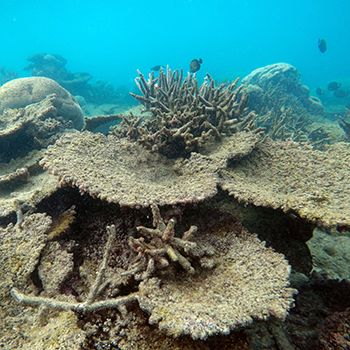The Great Barrier Reef in Australia experienced its worst recorded coral die off this year, with one region losing an average
 67 percent of its shallow-water coral, scientists confirmed this week. The mass die-off event was caused by abnormally warm water temperatures in the Pacific Ocean, which can trigger corals to expel their algae and calcify and turn white, a process known as coral bleaching. Corals can recover from bleaching, but many never do. “Most of the losses in 2016 have occurred in the northern, most-pristine part of the Great Barrier Reef,” said Terry Hughes, a marine biologist at James Cook University who led the surveys of the coral die-off. “This region escaped with minor damage in two earlier bleaching events in 1998 and 2002, but this time around it has been badly affected.” Damage to the southern two-thirds of the reef, however, was far less than expected, the scientists reported.
67 percent of its shallow-water coral, scientists confirmed this week. The mass die-off event was caused by abnormally warm water temperatures in the Pacific Ocean, which can trigger corals to expel their algae and calcify and turn white, a process known as coral bleaching. Corals can recover from bleaching, but many never do. “Most of the losses in 2016 have occurred in the northern, most-pristine part of the Great Barrier Reef,” said Terry Hughes, a marine biologist at James Cook University who led the surveys of the coral die-off. “This region escaped with minor damage in two earlier bleaching events in 1998 and 2002, but this time around it has been badly affected.” Damage to the southern two-thirds of the reef, however, was far less than expected, the scientists reported.

Dead table corals on the Great Barrier Reef.